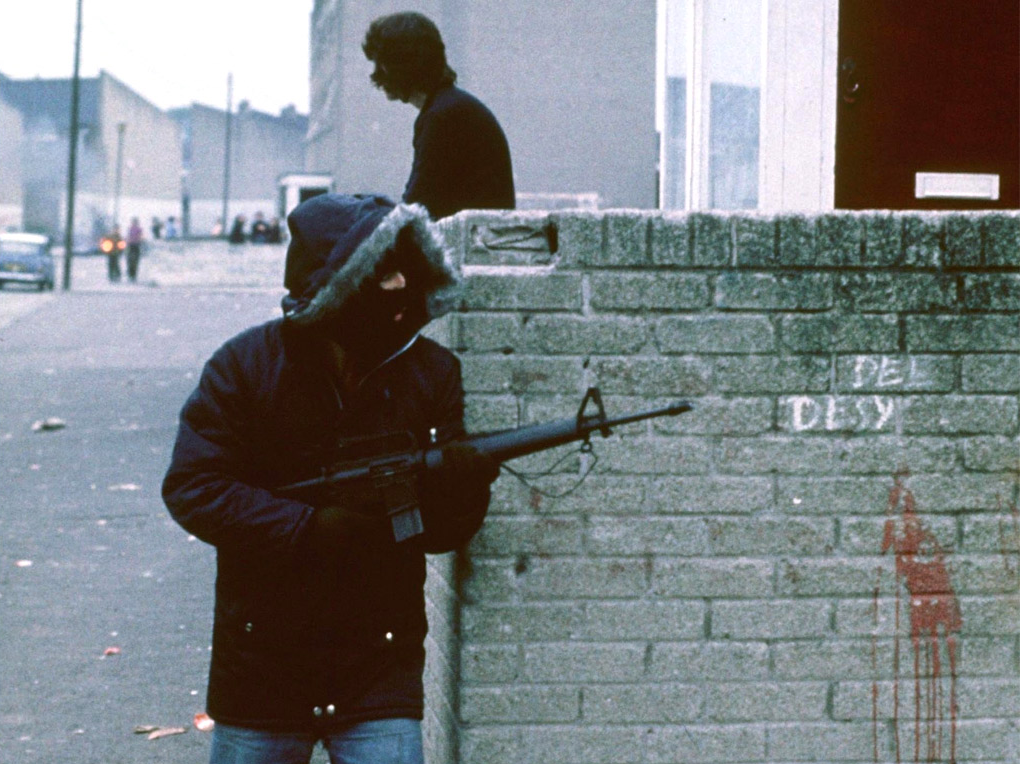Northern Ireland still not ready to forget: Attorney general's bid to end Troubles prosecutions sparks outrage from relatives of victims
Victims' relatives 'absolutely incensed' as David Cameron says it would be 'rather dangerous' to block possible future prosecutions

The issue of how to deal with victims and the past has once again proved to be the most intractable of Northern Ireland’s many post-Troubles problems.
Not for the first time, an attempt to break a two-decade deadlock caused a storm of protest from victims’ groups – as well as forthright rejection from most political quarters.
The proposal – to rule out any further inquests and inquiries into killings during the 30 years of the Troubles – drew a speedy and icy response from David Cameron. His description of it in the Commons as “rather dangerous” amounted to a flat rejection.
The idea was advanced by Northern Ireland Attorney-General John Larkin, who is chief legal adviser to the Belfast executive. It quickly emerged, however, that he appeared to be expressing a personal perspective, and had not consulted the executive before airing his views. His unexpected initiative drew angry reaction from the victims’ sector, with groups variously describing it as disgusting, ridiculous, bizarre and a betrayal.
Mr Larkin argued that there had been very few prosecutions in the years since the 1998 Good Friday Agreement, and that the prospect of convictions are diminishing as the years pass. He declared: “It strikes me that the time has come to think about putting a line, set at Good Friday 1998, with respect to prosecutions, inquests and other inquiries.”
Distancing himself from this proposal, Mr Cameron said the Government had no plans to legislate for any form of amnesty, saying pointedly: “The words of the Northern Ireland Attorney-General are very much his own words.”
The firestorm means that the vexed issue remains stubbornly at square one, since after years of debates, conferences and substantial reports there is nothing approaching a consensus on how to deal with the past. For this reason the issue has been placed on the agenda of Dr Richard Haass, the US diplomat called in to report on difficult issues including marching and flag-flying. Mr Larkin has made a submission to Dr Haass.
The main political parties have failed to reach substantial agreement on how to tackle the issue, while opinion among the dozens of victim groups differs widely. Some concentrate on IRA violence while others emphasise the actions of the security forces. Some demand prosecutions, while others campaign for full public inquiries; some seek apologies while others press only for information.
Among the criticisms levelled at Mr Larkin was one from Victims Commissioner Kathryn Stone, who said: “I think victims will be bewildered at this announcement, which will have come completely out of the blue to them as it has to me.”
Kate Nash, whose brother was shot dead by troops on Bloody Sunday in Londonderry, declared: “I’m absolutely incensed by what the Attorney-General is saying – my brother didn’t matter, my brother was murdered almost 42 years ago.”
Justice for the Forgotten, representing those who died in the Irish Republic, said the proposal was “incredible, bizarre and a betrayal of victims”. Stephen Gault, whose father died in the IRA bombing of a Poppy Day service in Enniskillen, said: “How dare he airbrush the innocent people who were murdered at the hands of terrorists to move things forward? I just think it’s totally, totally disgusting.”
By contrast, former Northern Ireland Secretary Peter Hain declared: “I think the Attorney-General has said what needed to be said – this issue needs to be addressed.
“You can’t keep on seeking to prosecute, going decades back for offences which may not be possible to pursue, which cost an awful lot of effort and money to try and track down. Victims need support and understanding in other ways.”
Join our commenting forum
Join thought-provoking conversations, follow other Independent readers and see their replies
Comments